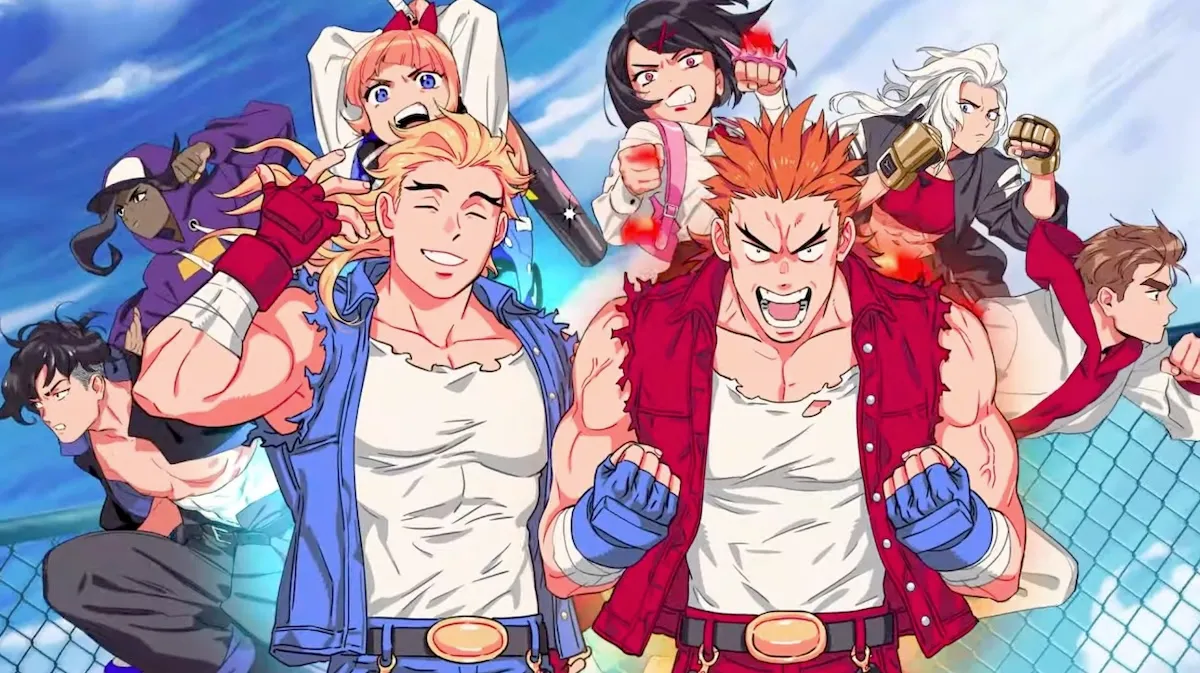
This follow-up to the Seven Deadly Sins of Gaming article from a few weeks back asks a much more serious question: how effectively can video games, as a medium, affect the player’s actions with a real sense of consequence and weight? Can video games make us feel the wages of our virtual sin?
Hit the jump for pure, unbridled pretention! Which is somewhat less pretentious now that I have acknowledged it!
Why should games make us feel the wages of sin?
The idea of “sin” is one easily defined, especially within the realm of video games. Killing, raping, stealing, blowing stuff up — essentially, everything that makes video games fun. So why should we care about making the player feel the consequences of it? Why bother adding weight to something enjoyable in the virtual world?
Why? Because moral consequence will be necessary in the furthering of video gaming as a medium of artistic expression. As long as politicians can point to games like Grand Theft Auto as an example of morally bankrupt, gratuitously violent entertainment without any games to contradict this view, gaming will always be looked at as a substandard form of entertainment.
I’m not suggesting that EVERY game should implement this concept, or even a majority, or even half: games can and should be fun, and the idea of every player’s actions having a definite moral weight doesn’t exactly inspire cheers of fun-loving glee – but that doesn’t make it any less important. For every ten games whose sole purpose is to mindlessly entertain through explosions and gunfire, there is one that aspires to something greater. These games strive to entertain, yes, but they also wish to develop a theme, or convey a message, or make the player feel something other than joy or excitement. Games like Shadow of the Colossus, or Silent Hill, or Façade.
Now, when I talk about consequences, I do not mean that the game should frequently punish the player for his actions (“consequence” and “punishment” are not synonyms), and when I refer to the wages of sin I do not mean that religion needs to have any particular place in video gaming. I simply mean to say that what a player does at the beginning should have an effect on the middle, which should have an effect on the end. The player’s actions should constantly have consequences.

How can a game make us feel the consequences of our actions?
To put it simply, through one of two ways: storyline, or gameplay. Consequence in the storyline is present in a hell of a lot of games (Mafia, for example), but it’s also the easiest to do and relies the least on player control. Storyline consequence is simply a matter of creating a linear path for the player that will always end in an at least marginally unhappy ending. This method of consequence essentially emulates the noninteractive mediums of art such as film, television, and literature.
The other, far more difficult method of implementing consequence is through gameplay.
For consequence to arise out of gameplay, the developer needs to accomplish one of two things: the player must either immediately feel some emotion after completing a task that imbues the action with a moral weight, or what a player does at an earlier part of the game must resurface in a later part of the game (and this later part must be shaped by the player’s actions earlier in the game).
For an example of the first, consider Shadow of the Colossus. The game is totally linear, and yet there is a definite consequence to the player’s actions, delivered entirely through gameplay. This has been discussed in detail in many other places, but when a colossus doesn’t instigate violence, or acts like a confused child, the player feels an immediate moral consequence after killing them. This moral weight forces the player to reconsider what he is doing, or at the very least think harder about why he is doing it.

For an example of the second type of video game consequence, look at Metal Gear Solid 3: Snake Eater — though MGS3 is one of my least favorite games, it provides some perfect examples of a player’s actions truly influencing the rest of the game. The boss fight with The Sorrow, for instance. While The Sorrow does not attack you directly, he forces you to avoid the ghosts of every soldier you killed up to that point in the game. Each soldier also suffers from the wounds you inflicted on them — if you sliced a soldier’s throat open, he will walk toward you with blood gushing out of his open neck. In seeing the ghosts of the soldiers he has murdered, the player is forced to come to terms with what he has done: often times, players are astounded at just how many soldiers they have killed through the course of the game. Granted, this type of moral weight isn’t exactly going to force the player into questioning his motives — if you buy a Metal Gear Solid game, you bought it to either hide in cardboard boxes or snap some necks — but it does force the player to hold himself accountable for his actions.
If these two examples seem very specific, it’s because they are: putting moral consequence into a video game, immediate or not, is not an easy thing to do. It requires a great deal of effort and thought, and it’s usually not something most gamers are keen on experiencing. We tend to enjoy our violence more when it’s guilt-free.

But then again, there is a third method of forcing the player to feel consequence, one much more common and much more “mainstream” in nature: branching storylines. Take True Crime: Streets of LA, where your ability to complete (or fail) a mission directly influences what your next mission is, and often times which ending you get. Playing the game as a “bad cop” (i.e., shooting innocent or unarmed people, breaking the law) gets you a different ending than if you play as a good one. While the game wasn’t very good, its branching storyline structure was handled adequately, and the player’s actions truly do influence the overall momentum of the game. That being said, the branching storyline gimmick was dumped in the sequel, True Crime: New York City. Whether this is due to the fact that it was too hard to program, or whether it was too underappreciated by critics to warrant its inclusion in the sequel is unknown.
Still, TC:NYC did include, at the very least, two separate endings, a method of consequence that countless games have also indulged in. From recent fare like Dead Rising, all the way back to the PSOne classic Oddworld, games have included multiple endings based on player actions for quite a while now. These multiple endings can usually be broken down into simple terms of “you win” versus “you don’t win,” but they still must be applauded for at least attempting to integrate player choice with an otherwise linear storyline.

And that isn’t to say that only adding multiple endings cannot adequately make the player feel consequence, or some other strong emotion: the Silent Hill series stands apart from the crowd, in this respect. Unlike other games, where an ending is usually determined by one major choice (Fear Effect) or one’s ability to complete an optional, but morally laudable task (saving Mudokons in any of the Oddworld games), the methods by which an ending is chosen in a Silent Hill game remain all but invisible to the player. For example, examining the photograph of a dead loved one too often will eventually force the protagonist to kill himself, or looking at a particular item in a particular place in a particular time will cause a massive change to the endgame. These invisible story branches, while not particularly “fun” (many players were frustrated that they received a “sad” ending without being told why they received it), go a long way in making the player consider what his actions mean in relationship to the character development of the protagonist. Not to mention, they provide a lot of artistic meaning (the suicide ending, for instance, tells us that focusing too much on the past makes you unable to face the future).
So, can games implement moral weight to the player’s actions?
Of course. The aforementioned games have done it with varying degrees of success, and the next-gen will hopefully give developers more opportunities to work player choice into the overall story (Bioshock and Mass Effect look to have fantastic potential in this respect). Of course, all of these games are just part of larger arguments about the ability of video gaming in general: can it be art? Can it ever be truly interactive?
These questions don’t have definitive answers (not yet, anyway), but one thing is for sure: games have always had the potential, if not the desire, to make us feel the wages of our virtual sins.



